The primary goal of the club is to encourage and accept karters with their wide range of karts to race under a safe, fun and low-cost culture. To achieve this, the club has created TWO distinct categories of classes.
Key point for these sprint kart based classes is that they must look like sprint karts. This necessarily means but not limited to the plastic bodywork inc. nose cone, nassau, side pods and rear bumper must remain in place. This category is for karts that have been used on sprint tracks, with the only real change being to adjust the gearing to suit the higher speeds. Despite the SKCWA name being superkarts, this category refers to generic and similar guidelines and rules pertaining to any matter, specifically including SAFETY, from other appropriate sprint karting associations or organizations (see listing below).
a. 125 TAGDescription: This is the lowest performance class, utilizing the wide range of 125 cc TAG style engines. These engines can have a simple centrifugal clutch, no gearbox (ie fixed ratio) and electric start. This makes the karts very simple to use. These karts are readily available second hand with prices from $2500 upwards. Essentially the only change to a kart from sprint kart racing is a change of gearing for which this might be 16/68 for a Rotax Max. It also includes previously homologated 100cc reed, rotary or piston port engines such as the Yamaha KT100S and ARC Spec 100s. Overall, the karts, engine and associated hardware is to be “as run” under appropriate sprint kart rules. Exceptions to this is a range of non-tech items to reduce the running costs. |
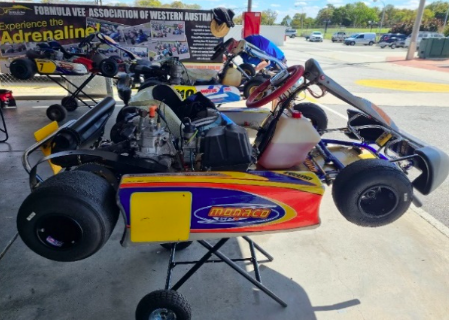
|
b. KZ2 125 GearboxDescription: KZ2 powered karts offer the next level of performance. KZ2 class run under WA State KZ2 Rules* with engine specs for CC’s, Ports, Carburettor and Internal Gear Ratios as per sprint kart regulations (2000-2024). Typical gearing for a TM KZ might be 18/20 for Carco and 17/20 for Collie. |
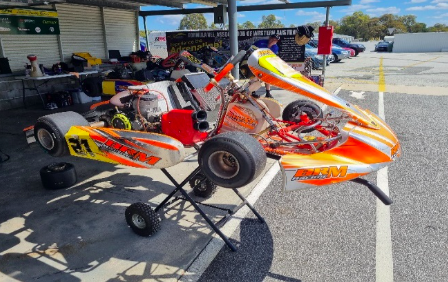
|
c. Open PerformanceDescription: The fastest of the sprint kart based division (Max 250cc) these karts can use twin 125cc kart engines (mostly X30 and Rotax Max), twin 100cc reed engines or a 175cc can also be used. These karts are usually based on a shifter sprint or twin-engine kart chassis. |
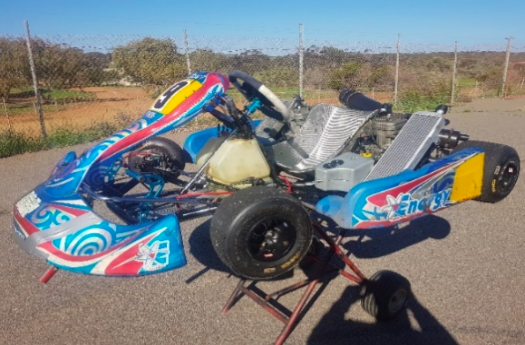
|
The main difference between a superkart and sprint based kart is that superkarts can have partial or full aerodynamic body kits, laydown seats, more powerful engines and, as a result, they can be a lot faster. For this category, the SKCWA refers to generic and similar guidelines and rules pertaining to any matter, specifically including SAFETY, from other appropriate superkarting associations or organizations (see listing below)
a. Open 125cc GearboxDescription: This class allows for any 125 gearbox engine. Chassis can be either shifter class sprint kart or purpose built superkart chassis, eg Anderson, Stockman. CIK level apparel strongly recommended. |
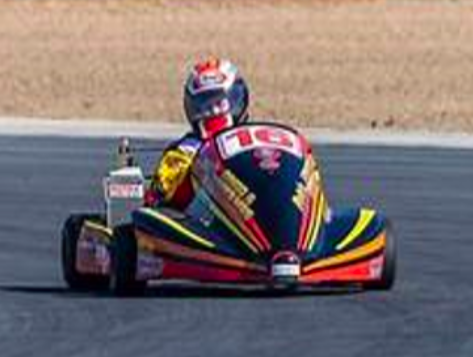
|
b. 250cc NationalDescription: The power unit is a single cylinder two-stroke motocross or a specifically designed 250cc kart engine. Chassis can be either shifter class sprint kart (suitably modified) or a purpose built superkart chassis, eg Anderson, Stockman. CIK level apparel strongly recommended. |
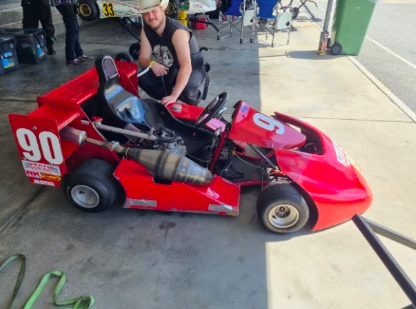
|
c. 250cc InternationalDescription: These karts use 2-cylinder 2 stroke engines with around 100 hp. Chassis can be either shifter class sprint kart (suitably modified) or a purpose built superkart chassis, eg Anderson, Stockman. CIK level apparel strongly recommended. |
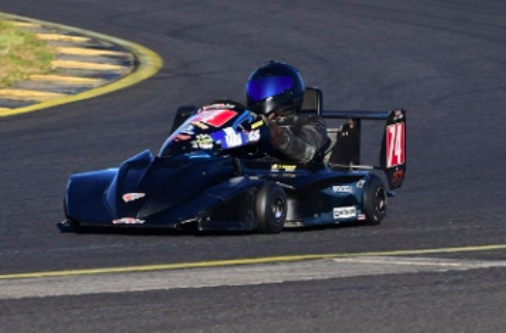
|
| KEY FEATURES | CATEGORY A | CATEGORY B | ||||
|---|---|---|---|---|---|---|
| 125cc TAG | 125cc KZ | Open Performance | 125cc Open Gearbox | 250cc National | 250cc International | |
| Bodywork | As per sprint plastics. Drop down nose cone optional | Same | Same | Frontal or full aero permitted | Same | Same |
| Seat | Layback must be less than 45 deg from vertical | Same | Same | Lay down seat with headrest optional. 60+ mm set washers. | Same | Same |
| Rear Bumper | Sprint plastic or steel | Same | Same | Sprint plastic or steel | Same | Same |
| Side Pod bars | As per sprint | Same | Same | Min 2 horizontal side pod bars 100mm apart | Same | Same |
| Airbox | As per sprinthomologation | Same | Same | NA | Same | Same |
| Exhaust & Silencer | As per sprint homologation | Same | Must be compliant with noise regulations | Same | Same | Same |
| Brakes | Rear brake only | 4 wheel brakes required | Same | Same | Same | Same |
| Tyres | Any current or previous approved sprint tyres. 5" only. | 4 wheel brakes required | Same | Any current or previous approved tyres. 5" or 6". | Same | Same |
| Rims | 3 bead locks per rim | Same | Same | Same, but 6 bead locks recommended | Same | Same |
| Rain Light | Must be fitted and operational if and when track declared wet by SKCWA officials if running with Category B karts | Same | Same | Must be fitted and operational if and when track is declared wet by SKCWA officials | Same | Same |
| Battery isolation | NA | Same | Same | Switch for ignition & fuel pump must be easily accessible | Same | Same |
| Fuel | 98 RON unleaded pump fuel only | Same | Same | 102 RON race fuel permitted | Same | Same |
| Fuel Tanks | Central mounted only. | Same | Same | Same, but side tanks permissible until end 2025 | Same | Same |
| Sensors | 2 allowed per engine | Same | Same | NA | Same | Same |
| Exhaust Tethers | Compulsory | Same | Same | Same | Same | Same |
NOTES
1. The SKCWA refers to generic and similar guidelines and rules pertaining to any matter, specifically including safety, from other appropriate sprint or superkarting associations or organizations.
2. In addition to the above and the key features; rules listed below, all karts and apparel must be presented and maintained in this state of conformance, for the duration of any SKCWA event. Some of these are included in the self scrutineering checklist in which the competitor formally signs off prior to entering the track. This conformance is the total responsibility of the competitor. Karts and apparel may also be independently scrutineered during an event.
3. For Club and State Championship Events the SKCWA may specify the tyres to be used for that Competition AND may set weights for relevant Classes.